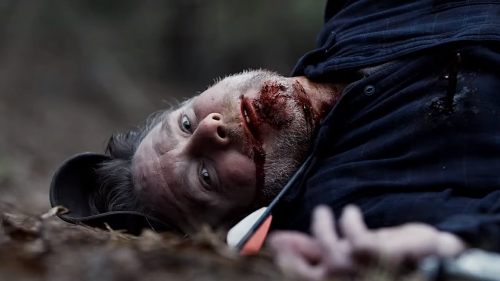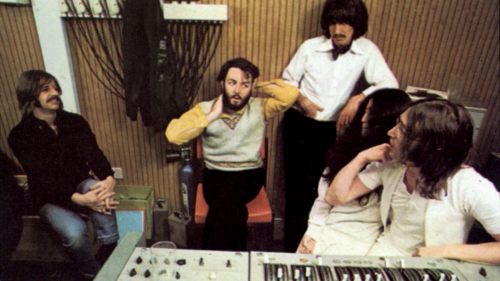FAHRENHEIT 11/9 Review: A Stirring But Self-Important Call To Action
“How the fuck did this happen?”
That question opens Michael Moore’s Fahrenheit 11/9, over footage recalling the wild change in atmosphere over election night 2016. Moore’s new documentary seeks to answer that question, and to look at the possible roads ahead - whether they lead to destruction or salvation. Frustratingly, however, like many Moore films it often strays from its central drive, muddying its strongest material in the process.
Front-loaded with its weakest content, Fahrenheit 11/9 (titled for the date the 2016 election results were announced) opens with a rundown of Trump’s worst qualities. It’s a painful retrospective of clips we’ve all cringed through before: Trump’s obsession with his daughter Ivanka, his sexualisation of minors and perving on beauty pageant contestants, his racism, his narcissism, his admiration of dictators. Anyone who’s been online over the past two years knows this stuff, and honestly, it’s low-hanging fruit for Moore.
Looking at the causes of Trump’s presidency nets stronger observations. The Russians, the Electoral College, and the FBI “emails” investigation get nodded to, as does Gwen Stefani (whose salary on The Voice, Moore conjectures, prompted Trump to run for President), but Moore goes wider than that. He blames the media, for its ratings-driven obsession with Trump. He blames Hillary Clinton for not campaigning hard enough, and credits Trump for having “played the media for suckers." And he positively heaps blame upon the Democrats - for their transformation into right-leaning corporate coddlers, for their systematic shutdown of non-establishment campaigns, and for the subsequent depression of the American voter base. Even Barack Obama doesn’t escape the magnifying glass, having disappointed many by laying the groundwork for several of Trump’s worst policies.
Much of Fahrenheit 11/9 studies Michigan as a microcosm of Trump’s America. Moore presents governor Rick Snyder - another wealthy businessman with no public service experience who took over democratic offices and slashed public services - as a mini-Trump, and it’s not a bad comparison. His telling of the Flint water crisis - again returning to his hometown, as he has many times since Roger & Me - is a potent one, examining the greed and bullshit behind what he describes as a “slow-motion ethnic cleansing.” The film hits its highest emotional notes here, the anger of a poisoned, impoverished, trapped population as clear as its water isn't. It would have been a strong documentary in and of itself, and indeed feels like an extract from a different, better film.
However, the Flint sections are also emblematic of Moore’s worst impulse as a filmmaker: to put himself at the centre of the movie. Some of his personal appearances constitute self-reflection - like his own complicity in giving Trump pre-election-year attention - but others display the smug irony that sours many viewers. His “told you so” inclusion of his own election predictions are one thing, but he also pulls unnecessary and cringeworthy stunts - visiting Snyder's office to stage a citizen’s arrest, spraying his mansion with Flint water - that simply aren’t necessary to tell the story. The issues would be better-served with Moore out of the picture - and at two hours plus, the film would play tighter too.
The second half of the movie concerns what happens next, and it starts by extrapolating towards apocalypse. Moore compares Trump to Adolf Hitler, acknowledging that it’s not a 1:1 comparison, but pointing out the parallels between the two figures and their paths to power. More pertinently, he interviews historians - and the last surviving Nuremberg Trials prosecutor - to get a sense of the broad patterns that are currently being repeated in America. Trump’s policies, from bigoted immigration laws to privatised schooling to climate denial, are all noted, but it’s Trump’s threat to democracy itself that gets the most attention. Moore’s subjects highlight Trump’s strongman tendencies, his emphasis on personal loyalty, and his trial balloons for an extended presidency, as the most dangerous threats to a democracy that has only really existed in its current form since the ‘60s. “We’re doing something for which I hanged [Nazis],” says the Nuremberg veteran; it’s hard to argue with that kind of experience.
It’s not all doom and gloom, though, as Trump’s presidency is presented as a potential firebrand for democratic action. Up-and-coming political “fighters” like Alexandria Ocasio-Cortez, Rashida Tlaib, and a host of everyday Americans inspired to run for Congress, are held up as the future of the country. Outside of national politics, Moore uses the case studies of the West Virginia teachers’ strike and the Parkland shooting survivors as examples of grassroots protest having a real effect in 2018. It’s a powerful segment, like clickbaity “restore your faith in humanity” stories, only they actually restore your faith in humanity.
Fahrenheit 11/9’s final statement is, predicably, a call to action - not to save America necessarily, but to create a better one. Like BlacKkKlansman, it closes with images of protest, but balances the racism and violence with the faces of people fighting for positive change. It's also possibly mislabeled as a movie about Donald Trump, who doesn’t even appear in large stretches of the film. Though its weakest, easiest points are made at his expense, it’s more a film about the America that created Trump, and the America Trump might create. Maybe he’ll create a dystopia; maybe he’ll inspire a counter-revolution. Moore’s film is laced with all the slick montages, wry voiceover, and unfortunate self-importance and lack of focus that have become his calling cards. But it’s hard to deny its final message: only action can make a difference.



